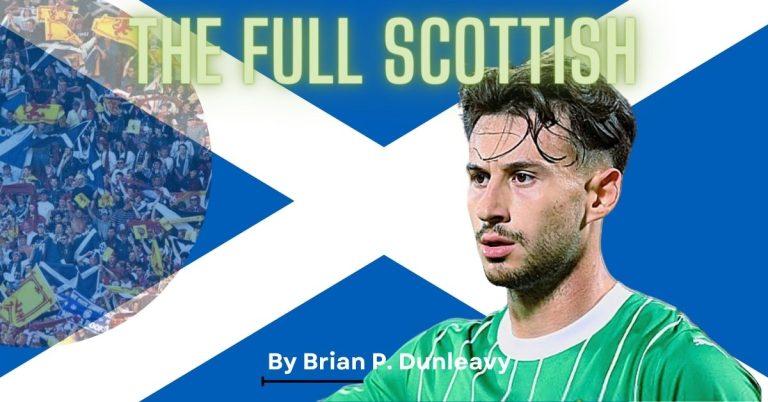Over the past decade and a half, under managers Neil Lennon I, Ronny Deila, Brendan Rodgers I, Lennon II and, now, Rodgers II, Celtic have left their transfer business in January until late in the month, and seemingly only filled part of their shopping list. It’s Groundhog Day in the United States as we write this week’s dispatch, and we can’t help but think we’ve lived this moment before.

The Full Scottish
There were exceptions under former bench boss Ange Postecoglou—who brought in the likes of Matt O’Riley and Reo Hatate (the latter of whom strained both calves while on Asian Cup duty with Japan)—practically as soon as the window opened in 2022. However, for the most part, even with a bulging bank balance, late signings are how the Hoops hierarchy have chosen to operate in the winter window.
Rodgers has continually banged the drum about the need for “quality,” particularly at striker, and the desperation for depth at that position, as well as at left back (where Greg Taylor is clearly fatigued, and now injured) and on the wings. In the end, though, Celtic were only able to secure winger Nicolas Kuhn on a five-and-a-half-year deal and loan signing Adam Idah for the rest of the campaign.
At the same time, midfielder David Turnbull and winger Mikey Johnston were allowed to leave (the latter on loan to West Brom). Gaping holes remain behind the injured Taylor at left back and in the midfield, what with Hatate’s long-term injury (out perhaps until April).
Rangers Sign Silva
Meanwhile, Rodgers has acknowledged that Celtic could be “a little braver” in the transfer market, but said he is “excited and positive” about squad he has. Supporters are, of course, apoplectic. About the only solace they can take is that their bitter rivals weren’t exactly busy either. Rangers signed Fabio Silva (from Wolves, on loan), Mohamed Diomande (from Nordsjaelland, on loan) and Oscar Cortes (from Lens, on loan). Notice a pattern?
The Ibrox side needed more depth up front and, while these signings help, they may not be enough. As loanees, they are also, hardly, permanent solutions.
The economics of the Scottish game certainly play a role here but we can’t help but think there’s more to the story. Leaving the cupboard so bare seems willfully shortsighted, for both Glasgow giants.